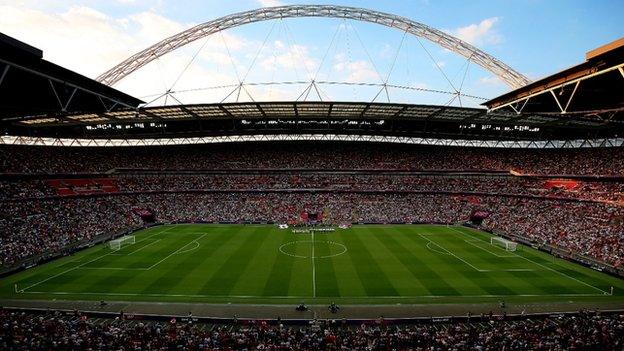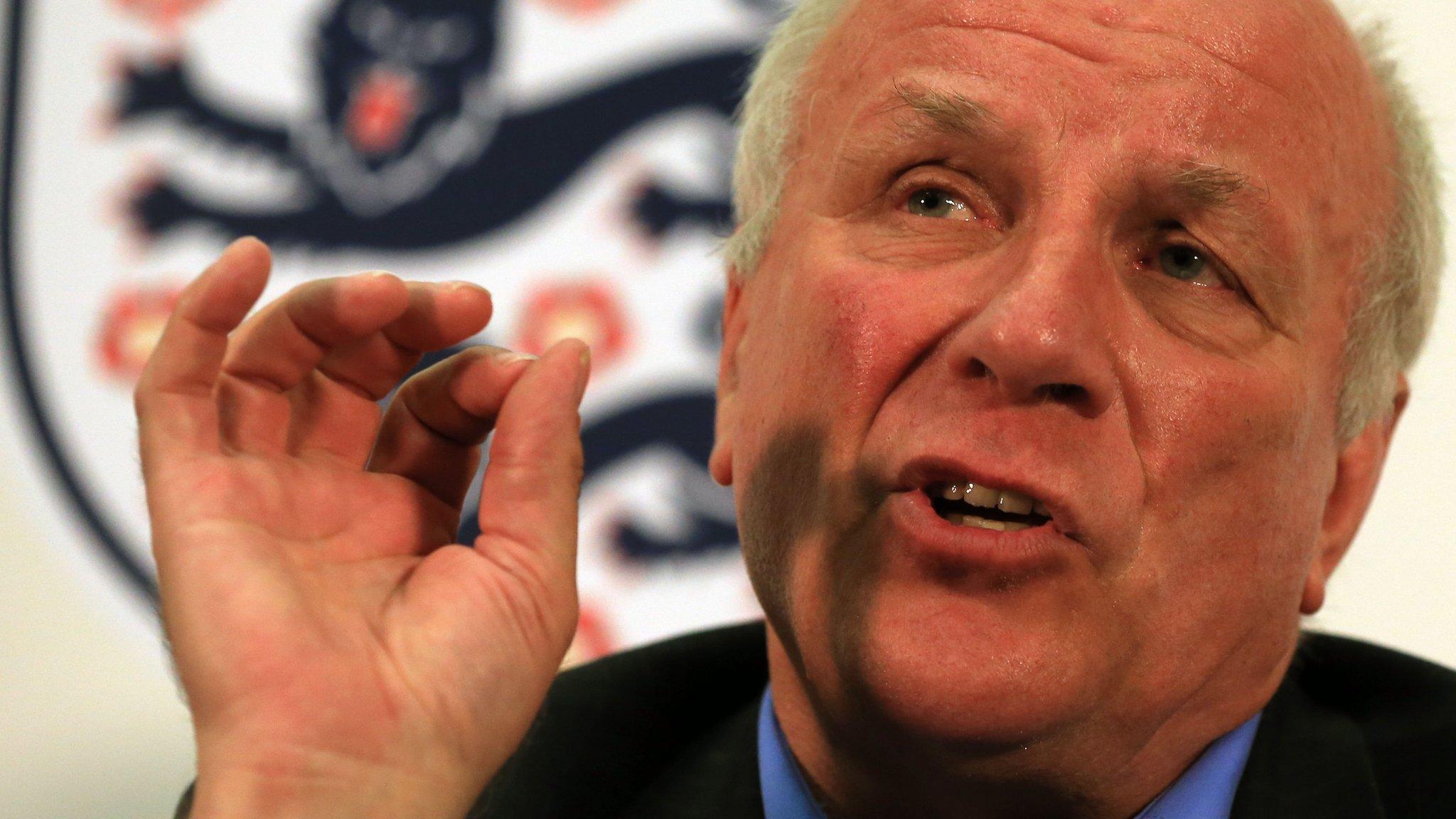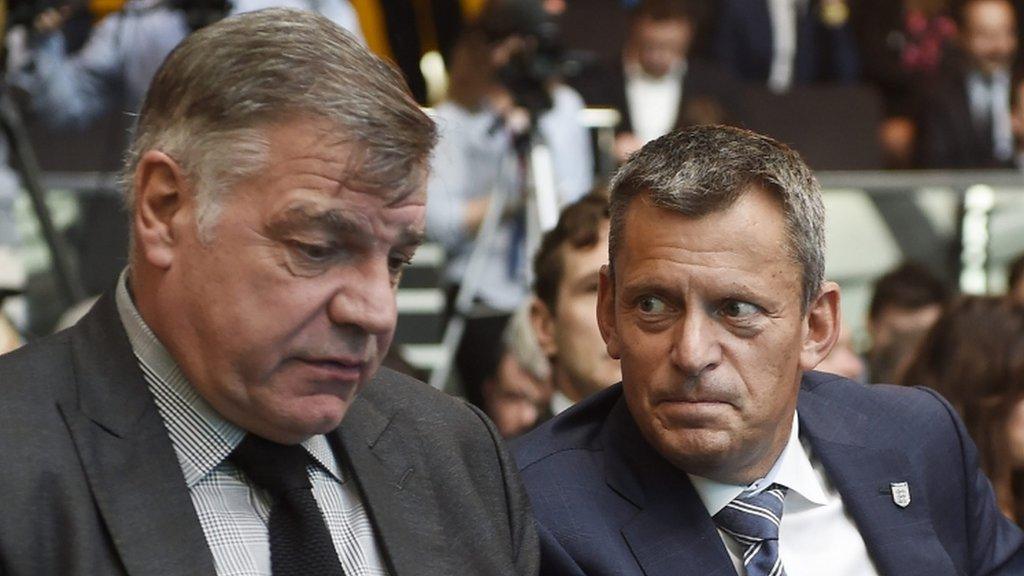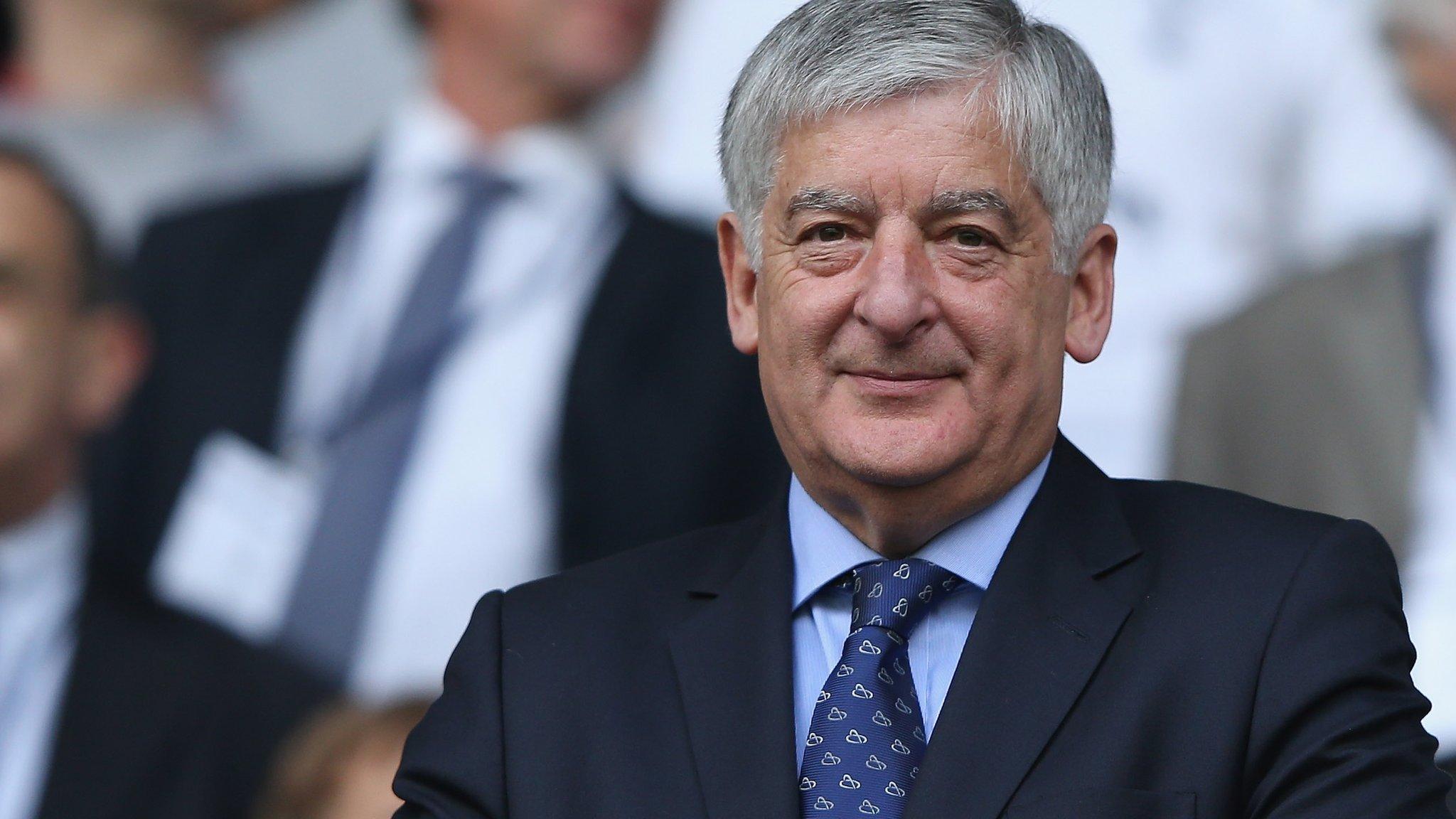FA reform will happen, says Sports Minister Tracey Crouch
- Published

Crouch has warned the FA that it risks losing public funding if it fails to reform
Sports Minister Tracey Crouch says the government will bring in legislation to force through Football Association reforms if the governing body does not make changes itself.
However, Crouch believes threatening to cut public funding will drive the FA to act before that step becomes necessary.
It comes after five former FA heads said the body has an "inability to reform and modernise".
"They have until April to set a path to reform," Crouch said.
"If legislation is something that has to be considered as a consequence of the FA and other sports not reforming themselves then that is something that we will do," she added.
"But I strongly believe funding incentives is the right way forward - let's be clear, if they don't reform themselves they will lose money."
Crouch announced in July that the FA would lose its £30m to £40m of public funding if it failed to reform.
Damian Collins MP: 'We no longer have any confidence'
Earlier on Monday, MP Damian Collins said that restructuring the FA would "give the power back to people who play football".
"We feel now that time has run out," he said. "We no longer have any confidence that the FA can or will reform itself."
The five former heads have asked Collins - head of the Culture, Media and Sport parliamentary committee - to propose legislation.
As well as claiming the FA was outdated and being held back by "elderly white men", the former heads also claimed it was unable to counter the power of the "juggernaut" Premier League.
Does the Premier League have too much power?
Premier League chief executive Richard Scudamore called the intervention "completely crazy", as the five former heads "should know better".
And while he said that most of the league's money "unashamedly" went into "putting on the show that is the Premier League", he defended its record on supporting grassroots football.
"As part of our success, nobody puts more money into the lower leagues, nobody puts more money into grassroots football," he told BBC sports editor Dan Roan.
"The FA is the wealthiest football association in the world, they have their own income, they can do what they like with their own income. We do enough."
The Premier League said £56m per year had been earmarked for grassroots projects, after agreeing a record TV rights deal in February 2015.
Premier League supports reform at FA - Richard Scudamore
And Scudamore cited the Premier League's support for the Burns review in 2005,, external which set out proposals for the restructuring of the FA, when asked about potential parliamentary reform.
"We currently have two out of 12 directors on the board, the most we've had is three, maybe four - clearly, that's not an ability to influence anything," he added.
"The reality is we have supported reform at the FA, we supported the Burns review in full, it's not because of us that the Burns review didn't get implemented in full.
"We know the government has said there needs to be reform - that's the government agenda. I'm absolutely certain it will be done properly, and it will be done by sensible people who know what they're doing."
Who are the five?
Greg Dyke, FA chairman from 2013 to August 2016, when he was replaced by current incumbent Greg Clarke.
David Bernstein, who spent three years in the role before Dyke.
David Triesman, the FA's first independent chairman, who resigned in 2010, later saying it was "impossible" to make the changes, external he wanted during his time in the role.
David Davies, a former executive director.
Alex Horne, a former finance director, managing director of Wembley Stadium, chief operating officer and general secretary at the FA, who left in January 2015 after 11 years at the organisation.
What are their criticisms?
The five sent a joint letter to Mr Collins calling for legislature "to redress the woeful lack of English players or managers and the embarrassing failures of our national team for the past 50 years".
They said: "It is little wonder that English football is out of balance. The FA has neither the modernity of approach nor independence required to counter the EPL juggernaut, or to modernise its own governance."
Bernstein told BBC Radio 5 live he believes the "only place to get change" is through Parliament.
And Dyke told BBC Sport that he left his role as it was "impossible" to make the changes he wanted to.
He said FA meetings were "like going back to 1952" and "bear no resemblance to Britain today", citing the lack of diversity and representation among the FA Council, which helps to rule on FA policies.
It has 122 members - 92 of whom are aged over 60, just eight are women and only four are from ethnic minority backgrounds.
Former FA Chairman Greg Dyke tells Radio 4's Today FA is like travelling back to 1952
- Published12 December 2016

- Published28 September 2016

- Published3 July 2016
